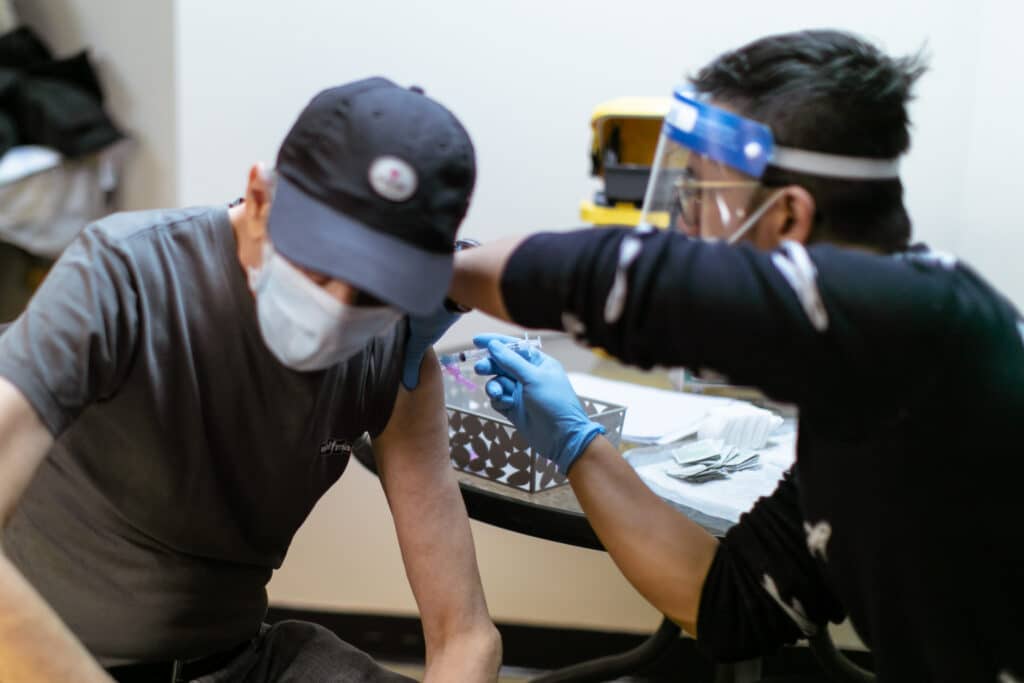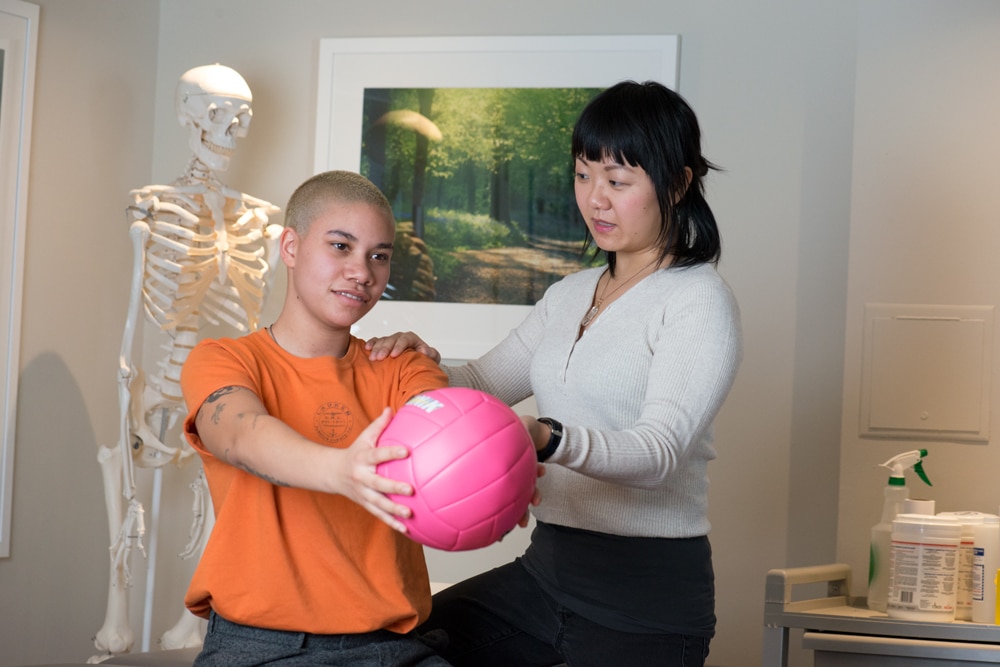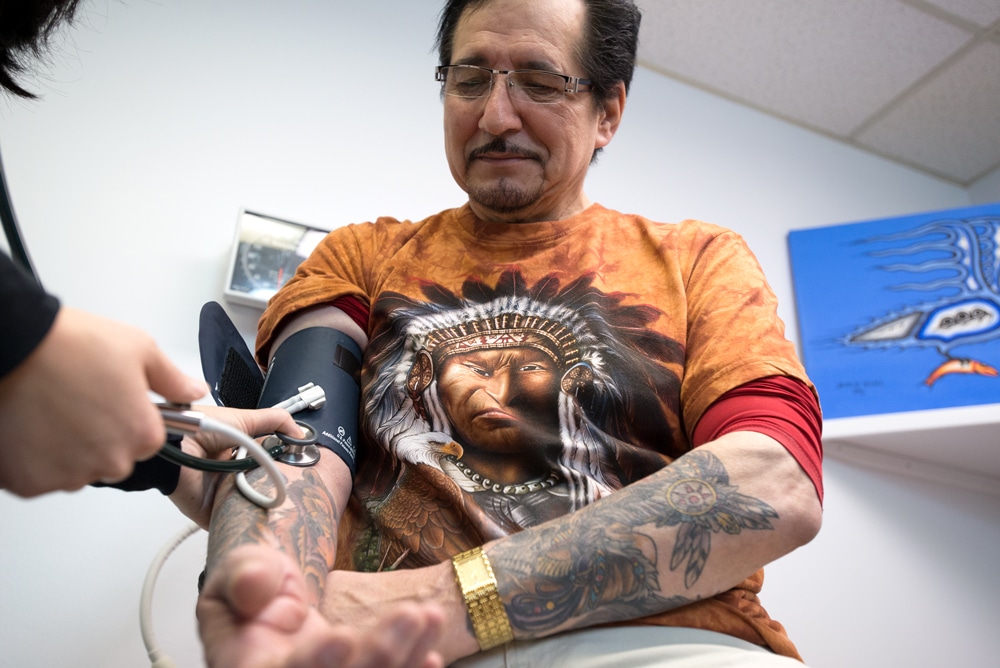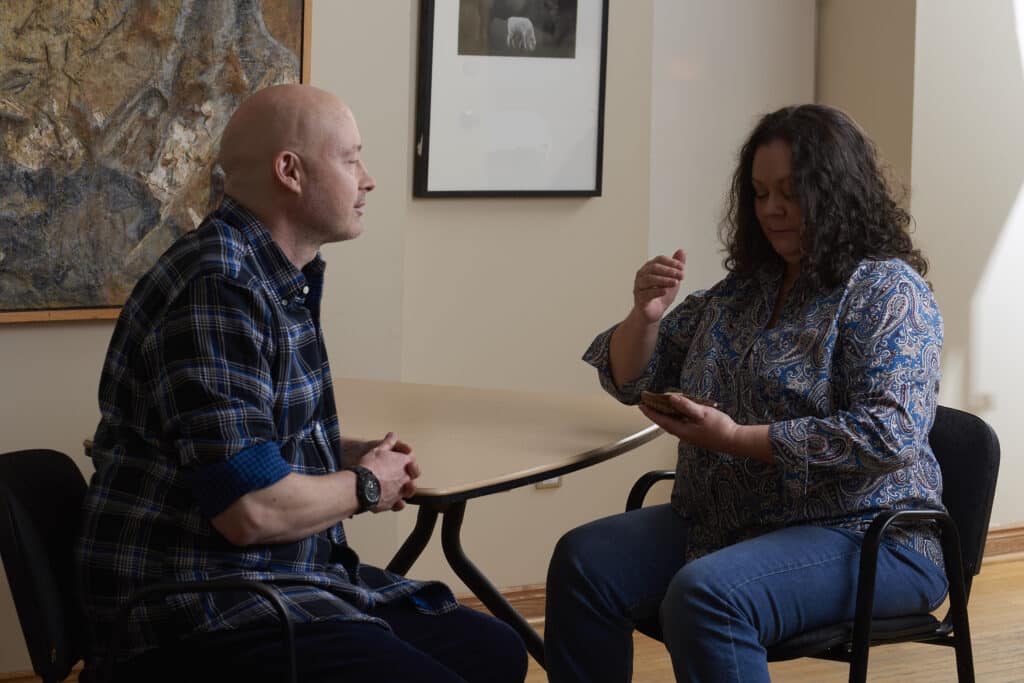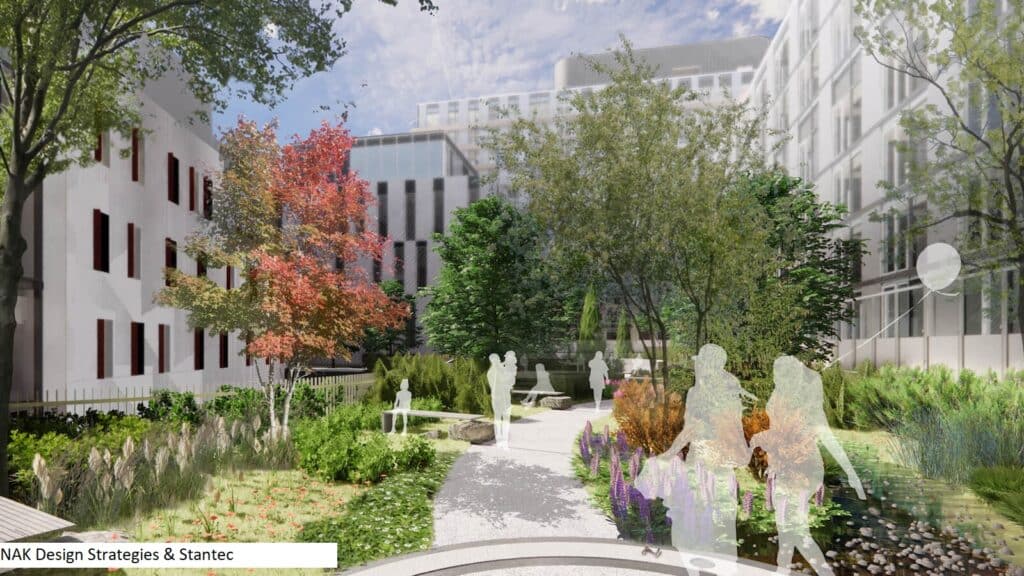About us
The origin story of Anishnawbe Health Toronto begins with Elder Joseph Sylvester’s vision of an Indigenous-led healthcare service in the City of Toronto. As lands of the Mississaugas of the Credit, the Anishnabeg, the Chippewa, the Haudenosaunee and the Wendat peoples, today, Toronto is home to nearly 90,000 Indigenous peoples. In the mid-1980s, a research project on the prevalence of diabetes at the Native Canadian Centre of Toronto inspired a small clinic with one visiting physician, open only a few hours each week, serving urban Indigenous clients.
The clinic provided culturally safe healthcare to a growing urban Indigenous population at the time, and it had a powerful team of Indigenous leaders with a clear vision and important mission. By 1987, the initiative was incorporated as a community health center and funding under the Ministry of Health. It was then, nearly 40 years ago, that the Anishnawbe Health Toronto (AHT) moved into its first permanent location to provide healthcare services to Indigenous peoples in the Greater Toronto Area.
“Community Health Centers are an important part of the healthcare system,” explains Anishnawbe Health Foundation Executive Director, Julie Cookson. “They look both at healthcare and provide primary care, but they also look at the social determinants of health and help clients to overcome them.” What makes AHT even more unique is that it supports both Western medicine and invests in the reclamation and preservation of Indigenous traditional knowledge and healing practices. AHT has traditional healers on staff full time and Indigenous health is the basis for all Anishnawbe Health programs.
Anishnawbe Health Foundation was born as the philanthropic arm of Anishnawbe Health Toronto, and works with generous donors and partners to support improved health and well-being for the urban Indigenous community.
On Indigenous Peoples Day – June 21, 2021 – another dream came true: AHT broke ground on a new Health Center as part of a new Indigenous Hub for the city! This new building will bring all of Anishnawbe Health’s services and programs under one roof, making all practitioners more accessible to clients. As the first building in the city designed from the ground up by an Indigenous organization, it will feature a sweat lodge and ceremonial grounds at its heart. The AHT Health Center is slated to open at Front and Cherry Streets at the end of 2023.
Read more about the new home for Anishnawbe Health here.
What’s AHF’s biggest hope? Julie says, “right now we’re shifting from the capital campaign to becoming a leader and expanding our support for urban Indigenous health. It’s a dream that we start to extend beyond the Toronto area.” One of the ways they are doing that is funding a new traditional knowledge training program that will support up to 10 Indigenous students to receive foundational training as Osh-ka-be-wis (Traditional Helpers).
Mission + Vision + Values
To inspire philanthropy to:
- Support an environment where the urban Indigenous community can heal spiritually, physically, emotionally and mentally by enhancing capital and program funding for Anishnawbe Health Toronto; and
- Foster the reclamation, preservation, research and application of traditional healing methods, including the sharing of these with all people.
Healthy Indigenous peoples contributing to sustainable urban communities.
Respect
Collaboration, partnership, teamwork
Transparency and accountability

